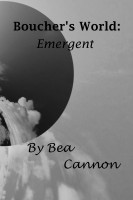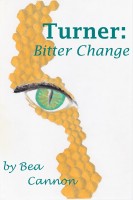Today we warmly welcome author Lizzie Lamb to Marcia’s Book Talk. Lizzie, author of TALL, DARK AND KILTED, SCOTCH ON THE ROCKS and BOOT CAMP BRIDE, discusses the fascinating use of locations for her novels, and how, and why she chose these particular places. Without any further ado, let us hear from Lizzie about the employment of locations in her books, and why she chose to spotlight these beautiful places…

Lizzie Lamb, author photograph
*
Location. Location. Location by Lizzie Lamb
How does a writer choose the location for her novels? Maybe it’s somewhere she loves and has revisited many times. Maybe it’s somewhere new which sparks off her imagination and she finds herself wondering what if . . . then the characters start forming themselves into an orderly queue, demanding to be given voice through the pages of her book.

Notting Hill setting for TALL, DARK AND KILTED

Wester Ross, setting for SCOTCH ON THE ROCKS

Wester Ross, setting for SCOTCH ON THE ROCKS (2)

Wester Ross, setting for SCOTCH ON THE ROCKS (3)
For example, in Tall, Dark and Kilted I have two different locations: Notting Hill and Wester Ross. I loved the movie Notting Hill and was intrigued by how desirable that area has become, when once it was regarded as a slum and was the scene of race riots in the late 50’s. A few summers ago I had a one-off opportunity to explore the garden square where Hugh Grant and Julia Roberts fell in love. These gardens are private and access is usually only available to the owners of the million pound houses which back onto these fabulous green rectangles. The garden which blew me away, was one just off Elgin Crescent W11.

Kensington setting for TALL, DARK AND KILTED

Royal Borough of Chelsea setting for TALL DARN AND KILTED
Inspired, I used it for the location where out-of-control sisters, Cat and Isla Urquhart, hold a wild party and get busted by the local police. As a direct result, the heroine Fliss, loses her job and travels up to Wester Ross to manage a holistic spa owned by their ditzy mother, Mitzi. There she clashes with their brother, brooding, haunted Ruairi Urquhart. Their love story unfolds against a backdrop of a highland castle set in beautiful Wester Ross, Kinloch Mara.

Highland of Scotland
Scotland has featured in two of my books and will also be the setting for number four (hopefully published late 2016). Why Scotland? Anyone who visits the far west coast of Argyllshire and further north cannot fail to be affected by the swirling mists, changing light and the magical, mystical atmosphere engendered by the lochs, mountains and rushy glens. Small wonder the place is populated by faerie waterfalls, monsters in the mist and – of course – gorgeous heroes wearing kilts.

Highland of Scotland (2)
In Scotch on the Rocks I have imagined a once-thriving island community – Eilean na Sgairbh, now almost deserted since the closure of the local whisky distillery owned by my heroine, Ishabel’s, family. This island was partly inspired by Skye and Kyle of Lochalsh, but is in fact an amalgam of other places I’ve visited on that coast. I loved the idea of an island community cut off from the mainland twice daily by the tide and only accessed by an ancient causeway known as The Narrows. It is across this causeway that the hero Brodie is blown in on a storm wind – and then the fun begins. I was able to give full rein to my imagination and describe the island in some detail when Issy takes Brodie on a guided tour of Eilean na Sgairbh to visit the ruined distillery. He nervously clings to the side of the car, being more used to six lane highways and urban American landscape than the soft contours of Eilean na Sgairbh.

North West Norfolk, setting for BOOT CAMP BRIDE

North West Norfolk, setting for BOOT CAMP BRIDE (2)
Boot Camp Bride was inspired by a totally different location, North-West Norfolk. A friend has a house in Thornham, near Hunstanton, and I’ve spent many happy days walking on the marshes. That coast has a stripped back beauty which you don’t get at first glance, it took me several visits to ‘get my eye in’ and I’ve loved it after ever since. Once, when sitting on a bench overlooking the marshes, watching flocks of wild birds coming in to feed, I thought what a great place it would be to smuggle drugs into the country! Behind me was a large house known as Thornham Manor and I thought – what if the house was a Boot Camp for Brides and a front for smuggling activities? My mind ran on a bit further – what if a rookie journalist (Charlee Montague) has to pose as a prospective bride to gain entrance and a cynical, hard bitten photographer (Rafael Fonsecca-Ffinch) poses as her fake fiancé to get the ‘scoop’? The hero, Rafa, also happens to own a mews cottage located in a Chelsea backwater – it’s in need of a serious upgrade, but I could almost imagine Austin Powers living in it! That’s the best thing about being a writer, you can do whatever you want with your characters and where they live.
That about wraps it up. If you like your romance with a great big dollop of humour, fabulous locations and guaranteed happy ending, check out my novels. My heroines are can-do, go-getting women and my heroes – well, they’re just to die for – kilted or not!
*
Lizzie Lamb Links
Amazon page
Facebook
Email: lizzielambwriter@gmail.com
website
Linked in
Goodreads
Twitter
Lizzie’s Blog
*
Lizzie Lamb Bio
Life is not a rehearsal
If you have a dream – go for it.
After teaching her 1000th pupil and working as a deputy head teacher in a large primary school, Lizzie decided it was time to leave the chalk face and pursue her first love: writing. She joined the Romantic Novelists’ Association’s New Writers’ Scheme, honed her craft and wrote Tall, Dark and Kilted (2012), quickly followed a year later by Boot Camp Bride. Lizzie loves the quick fire interchanges between the hero and heroine in the old black and white Hollywood movies, and hopes this love of dialogue comes across in her writing. Although much of her time is taken up publicising Tall, Dark and Kilted and Boot Camp Bride, she has published a third novel SCOTCH ON THE ROCKS and started research for number four. Lizzie is a founding member of indie publishing group – New Romantics Press. In November 2014 they held an Author Event at Waterstones High Street, Kensington, London the icing on the cake as far as they are concerned – and a fitting way to celebrate their achievements. As for the years Lizzie spent as a teacher, they haven’t quite gone to waste as she is building up a reputation as a go-to speaker on the subject of self-publishing.
MORE ABOUT LIZZIE
With Scottish, Irish, and Brazilian blood in her veins, it’s hardly surprising that Lizzie Lamb is a writer. She even wrote extra scenes for the films she watched as a child and acted out in the playground with her friends. She is ashamed to admit that she kept all the good lines for herself. Luckily, she saves them for her readers these days. Check out her reviews, they speak for themselves.
*
Here are the book blurbs for Lizzie’s books if you want to find out more about them:

Lizzie Lamb’s book covers
BLURB FOR TALL DARK AND KILTED:
Fliss Bagshawe longs for a passport out of Pimlico where she works as a holistic therapist. After attending a party in Notting Hill she loses her job and with it the dream of being her own boss. She’s offered the chance to take over a failing therapy centre, but there’s a catch. The centre lies five hundred miles north in Wester Ross, Scotland. Fliss’s romantic view of the highlands populated by Men in Kilts is shattered when she has an upclose and personal encounter with the Laird of Kinloch Mara, Ruairi Urquhart. He’s determined to pull the plug on the business, bring his eccentric family to heel and eject undesirables from his estate – starting with Fliss. Facing the dole queue once more Fliss resolves to make sexy, infuriating Ruairi revise his unflattering opinion of her, turn the therapy centre around and sort out his dysfunctional family. Can Fliss tame the Monarch of the Glen and find the happiness she deserves?
http://viewbook.at/B009SG3EQY
BLURB FOR BOOT CAMP BRIDE
Take an up-for-anything rookie reporter. Add a world-weary photo-journalist. Put them together . . . light the blue touch paper and stand well back! Posing as a bride-to-be, Charlee Montague goes undercover at a boot camp for brides in Norfolk to photograph supermodel Anastasia Markova looking less than perfect. At Charlee’s side and posing as her fiancé, is Rafael Ffinch award winning photographer and survivor of a kidnap attempt in Colombia. He’s in no mood to cut inexperienced Charlee any slack and has made it plain that once the investigation is over, their partnership – and fake engagement – will be terminated, too. Soon Charlee has more questions than answers. What’s the real reason behind Ffinch’s interest in the boot camp? How is it connected to his kidnap in Colombia? In setting out to uncover the truth, Charlee puts herself in danger … As the investigation draws to a close, she wonders if she’ll be able to hand back the engagement ring and walk away from Rafa without a backward glance.
http://viewbook.at/bootcampbride
BLURB FOR SCOTCH ON THE ROCKS
Where the men are men and the women are glad of it!
ISHABEL STUART is at the crossroads of her life.
Her wealthy industrialist father has died unexpectedly, leaving her a half-share in a ruined whisky distillery and the task of scattering his ashes on a Munro. After discovering her fiancé playing away from home, she cancels their lavish Christmas wedding at St Giles Cathedral, Edinburgh and heads for the only place she feels safe – Eilean na Sgairbh, a windswept island on Scotland’s west coast -where the cormorants outnumber the inhabitants, ten to one.
When she arrives at her family home – now a bed and breakfast managed by her left-wing, firebrand Aunt Esme, she finds a guest in situ – BRODIE. Issy longs for peace and the chance to lick her wounds, but gorgeous, sexy American, Brodie, turns her world upside down.
In spite of her vow to steer clear of men, she grows to rely on Brodie. However, she suspects him of having an ulterior motive for staying at her aunt’s B&B on remote Cormorant Island. Having been let down twice by the men in her life, will it be third time lucky for Issy? Is it wise to trust a man she knows nothing about – a man who presents her with more questions than answers?
As for Aunt Esme, she has secrets of her own . . .
viewBook.at/scotchontherocks
BLURB FOR HOCUS POCUS
An anthology of short stories and novellas with a mystical twist, spooky rather than gory. From haunted house to fallen angel, devious spirit to soul stealers there are thirteen (of course!) spine-tinglers to delight the reader. Among the collection you will find award winning authors of bestselling novels, but there are some new voices, too. My story Jumping the Queue is about . . . well, I’ll leave you to read it and find out. I wouldn’t want to spoil the ending now, would I?
Hocus Pocus ’14 – a collection of spooky short stories
http://tinyurl.com/Hocus-Pocus14





























